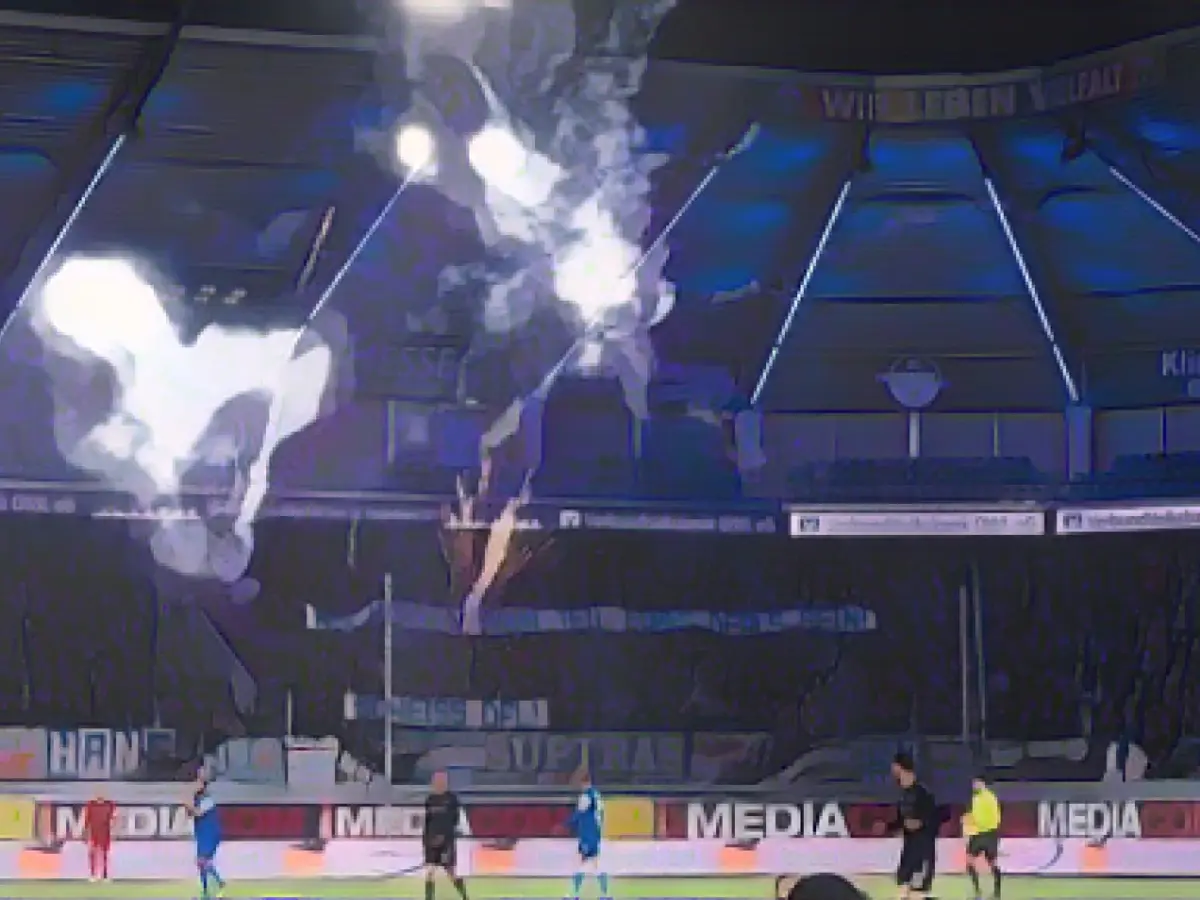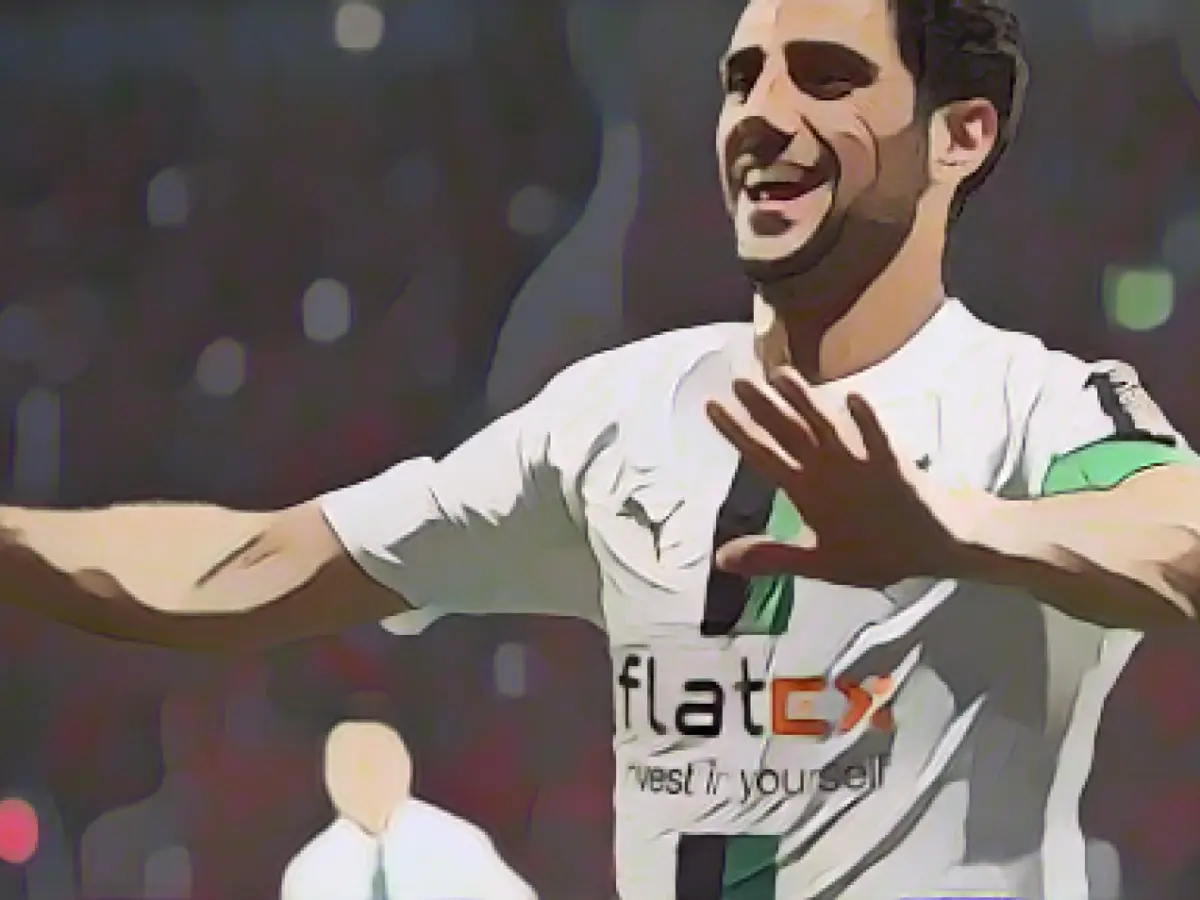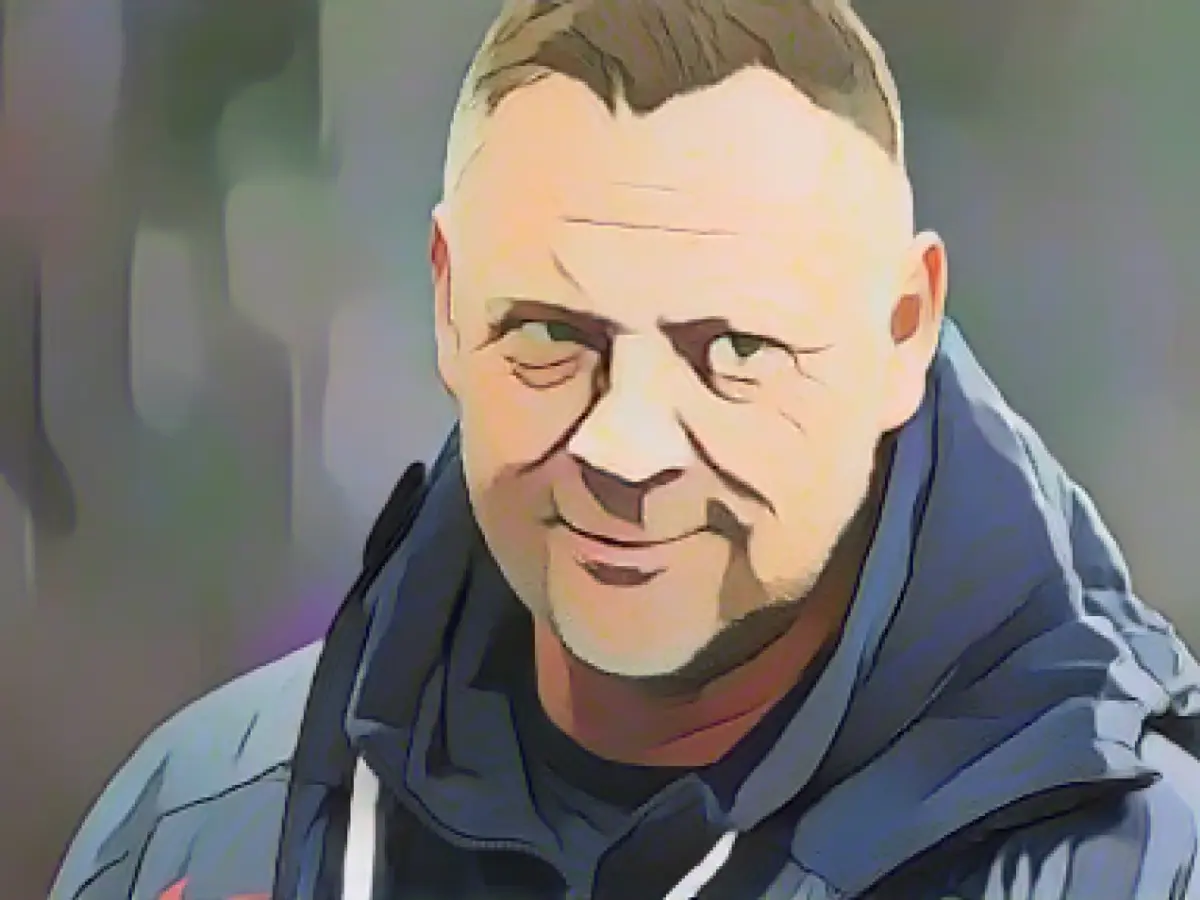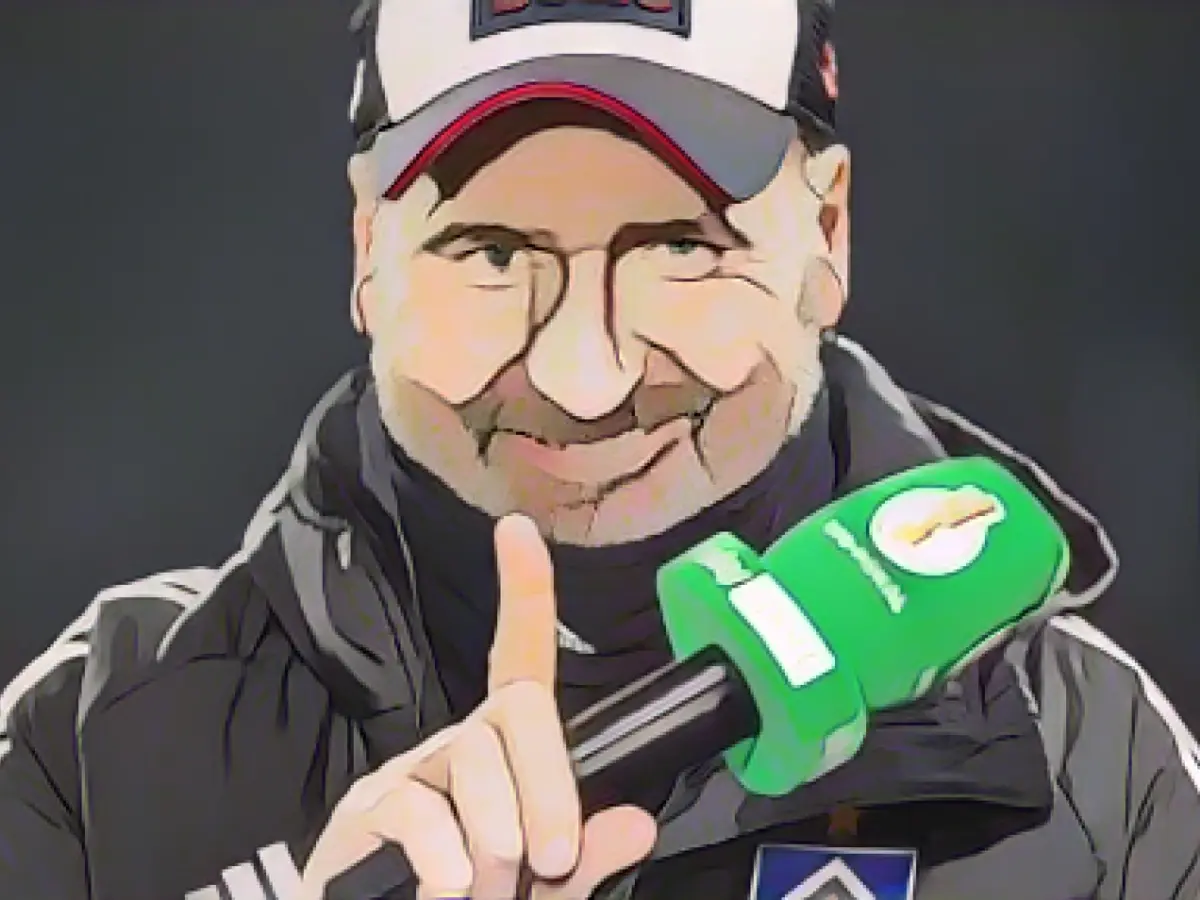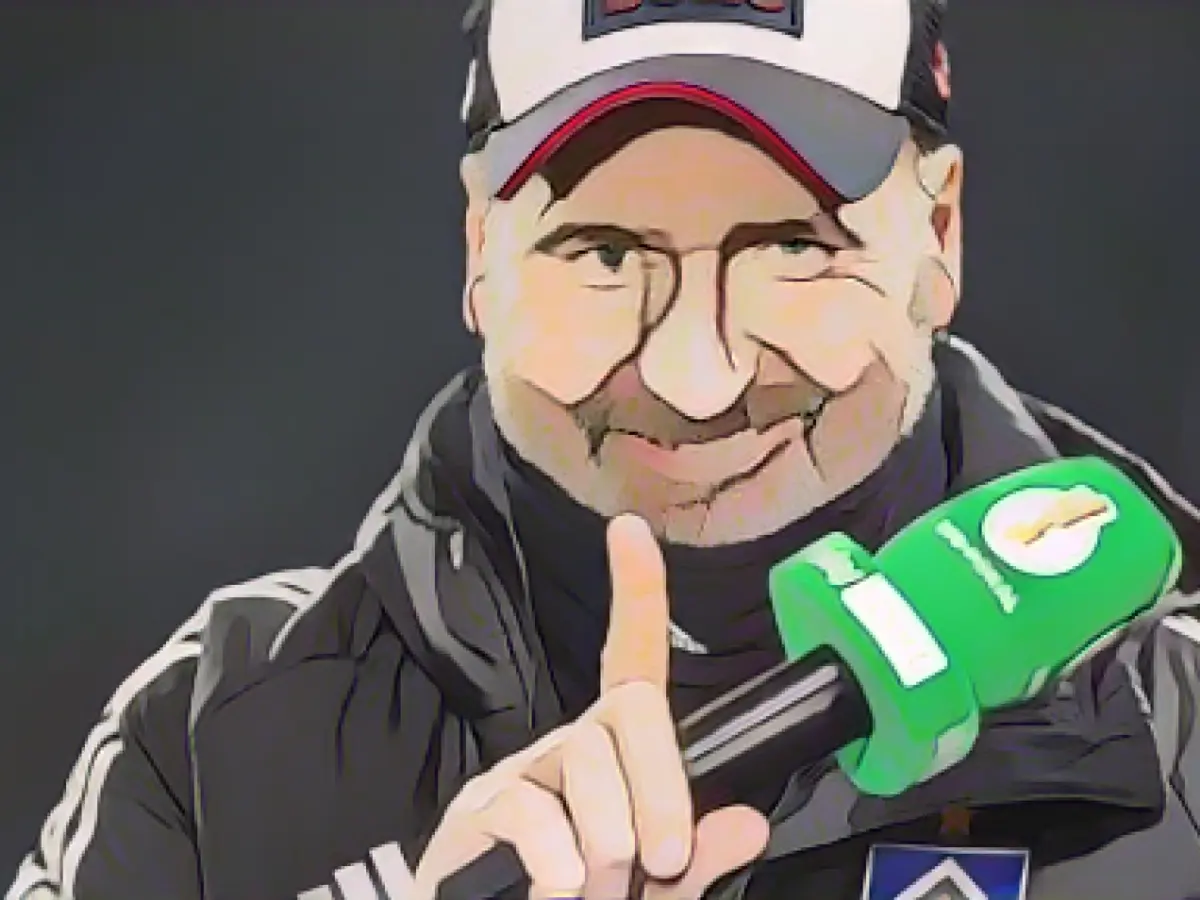Protests in Bundesliga: Fans Speak Out against DFL with Coins, Banners, and Pyrotechnics
Fans voiced their displeasure against the German Football League (DFL) by tossing imitation coins and shouting slogans during the Bundesliga and 2. Bundesliga matches last weekend. The demonstrations, announced by several fan groups, aimed to express disapproval of the DFL's decision to allow investors in the league.
Protests in Paderborn and Mönchengladbach
Friday evening saw the first of the stated fan protests against the DFL, with supporters in Paderborn and Mönchengladbach taking action during their respective matches. In Paderborn, the match between SC Paderborn and Hansa Rostock saw frequent interruptions due to pyrotechnics used by Rostock's fans and serious fan riots. An unusually high number of Hansa supporters and police officers sustained injuries in the unrest. The Rostock goalkeeper and captain, Markus Kolke, who was shown a red card after 63 minutes, condemned the use of pyrotechnics, expressing concern for player and fan safety.
Mönchengladbach's supporters ended their initially demonstrative silence following twelve minutes of play by shouting "Shit DFL" and throwing coins onto the pitch. The game was paused for a few minutes to clear the pitch of the fake money. Both teams' fans also shared their dissatisfaction throughout the 3:0 (1:0) victory of SC Paderborn over Hansa Rostock.
Schalke's Visiting Supporters Boycott
At Schalke's match against SpVgg Greuther Fürth, the visiting supporters participated in a boycott. They displayed posters bearing the message, "No to investors in the DFL!" Many soccer fans across Germany sought to express their disapproval of the DFL's decision by participating in a 12-minute silence during games this weekend. Some teams, like VfB Stuttgart with coach Sebastian Hoeneß, acknowledged the significance of the silence, noting its potential to draw attention to both sides' concerns.
The German Football League and the DFL's Mandate
The fan protests followed a general meeting held earlier in the week, during which the German Football League (DFL) received a mandate from the professional clubs to enter into negotiations with a strategic marketing partner. The investor was set to pay up to one billion euros for a share of TV revenues, under a 20-year contract. The move to allow investors in the league has sparked controversies and discontent among the fans, who view it as an attack on grassroots soccer in Germany.
The 12-Minute Silence and Balancing Act
Coach Sebastian Hoeneß acknowledged the right of fans to express their disapproval but emphasized the importance of maintaining contact with international soccer and its fans. Bayer 04 Leverkusen coach Xabi Alonso similarly spoke about the need to balance tradition with development, noting that the club has both local and international supporters. Despite having supporters in Germany, Spain, Argentina, and Japan, Alonso stresses that the club's vision must be both traditional and inclusive, acknowledging the soccer jungle of global leagues.
The unique soccer culture in Germany serves as a valuable selling point for the country. According to the fan groups' statement, the fans' collective participation in the Bundesliga product constitutes their greatest weapon to defend against the greed and arbitrariness of the DFL. The managing directors of the league were encouraged to cease the disastrous investment project, with the fan scenes vowing to monitor the situation closely.
Enrichment Insights
German football's fan protests are influenced by historical and contemporary political, societal, and cultural factors. The Nazi era saw the politicization of football, with the sport heavily impacted by the regime. After World War II, football in Germany continued to reflect societal shifts, with the bribery scandal in the 1970s being a significant event.
Today's fan protests in German football have taken on a more political and social focus. Many fan groups have been vocal opposing right-wing extremism and xenophobia, with some clubs actively promoting anti-racist policies. The use of pyrotechnics and coins as protest tactics is a result of their media impact and ability to create a visual statement, drawing attention to their causes. Fan riots and hooliganism have been a part of Germany's football history, but modern-day protests are generally more focused on promoting inclusivity and anti-racist values.
